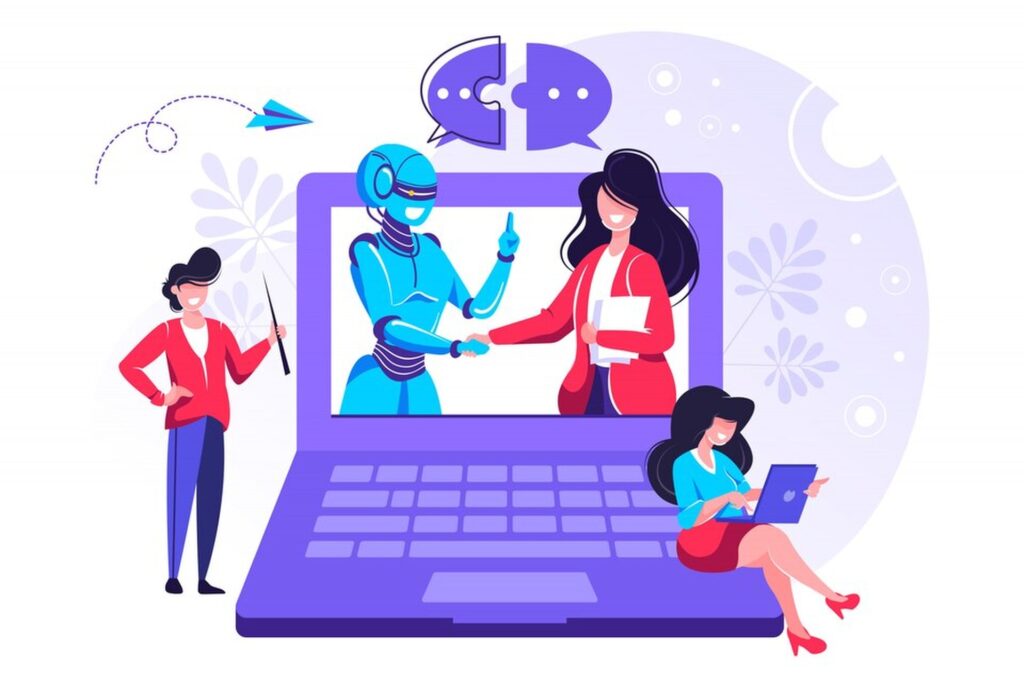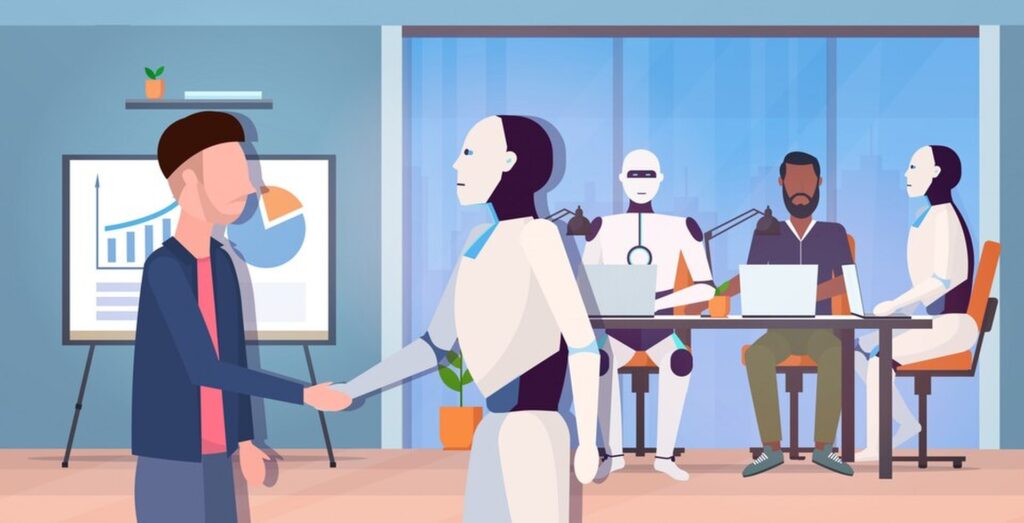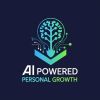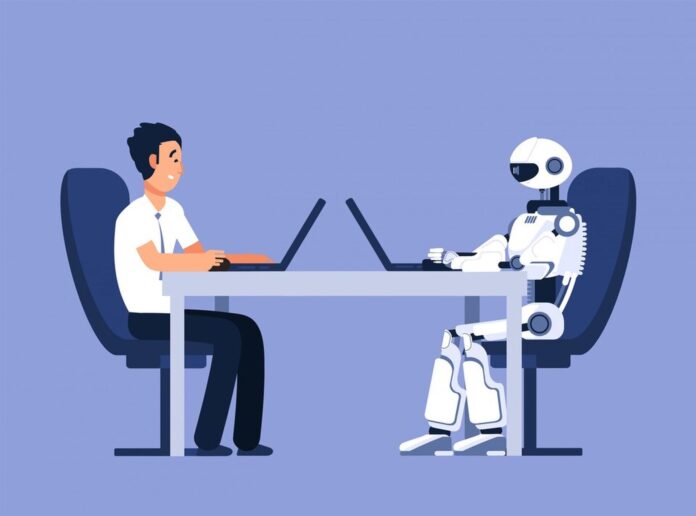In today’s job market it is important to stand out in interviews. In the traditional way of getting ready for an interview people often practice with family friends or paid teachers. These methods are useful but they might not work in all situations because they don’t give enough feedback or can’t simulate real world pressure.
AI powered tools are changing the way people prepare for job interviews in a big way. These tools can be used at any time to give people individual feedback and let them practice and improve their answers to a wide range of questions that are special to their field.
It is no wonder that AI is being used more and more to prepare for interviews. Companies are using technology to hire more and more and AI can help job candidates change, improve and increase their chances. Today people looking for work can use AI powered tools that mimic real life interview situations. This makes it easier to practice, get better and eventually get hired.
AI Mock Interviews Practice Anytime Anywhere

One great thing about AI for interview prep is that it lets you practice fake questions whenever and wherever you want. For traditional fake interviews you need to make plans with someone like a friend, an instructor or a professional teacher. AI tools on the other hand get rid of this problem by letting users have virtual mock interviews whenever they want. You can practice as much as you need with these tools which act out real interviews with questions that are tailored to your desired role.
Platforms like Interviewing.io and Preamp let users choose the type of interview they want such as behavioral or technical questions based on the job or business. These tools also let candidates practice how to answer common or difficult questions putting them under real pressure without worrying about being judged.
The AI also keeps learning from your answers and changes the questions based on how hard the job is. If you’re training to be a high level manager AI will make questions that are similar to real life leading situations. This adaptability makes sure that practice stays useful which can be a lot more useful than working with a small set of questions.
Polishing Responses With Natural Language Processing
Artificial intelligence is getting better at understanding subtleties in words. A type of AI called natural language processing (NLP) lets interview prep tools look at both the content and the way you say things. This makes it possible for AI to give you useful feedback on how well and easily you speak.
NLP is now used by a lot of AI tools to test how well you can express your thoughts. They pay attention to things like organization, tone, and clarity. In the STAR method (Situation, Task, Action, Result), for example, when you answer a behavioral question, the AI can point out any parts of your answer that might not be clear or full. It could tell you to add more information to the “Result” part or change your answer to make your effort more clear.
AI can also spot filler words like “um,” “uh,” and “you know,” which are common ways to talk that make you less powerful overall. The tools then give you tips on how to be clearer and more sure of yourself, which is very important in interviews where time is of the essence. In the end, this helps you get better at not only giving clear answers but also talking to people with ease.
Body Language And Vocal Coaching Through AI

AI is growing its skills by giving you feedback on how you look and sound during interviews. In the past, interview prep may have mostly been about what you say. A lot of AI tools now combine video and voice analysis, looking at your body language and tone of voice to give you a more complete picture of how well you do in interviews.
AI-powered systems can look at your stance, the way you look, and how you make eye contact. Tools like HireVue and Talegent use a screen to see if you look secure and interested. They might tell you to stand up straighter or look the camera straight in the eye to look more sure of yourself.
These tools also check your verbal delivery and let you know if you have problems like speaking too quickly, in a monotone, or with too many stops. The AI will help you change your pace and tone so that your answers have the most effect if you tend to rush through them or not use the right vocal inflections. A lot of conversation happens without words, so working on your voice and body language can make a big difference in how you are seen and heard during an interview.
Tailoring Your Resume And Elevator Pitch Using AI Insights
Another important area where AI can make a difference is resume optimization. Resume makers that use AI, such as Jobscan and Resumake, let people who are looking for work match their resumes to job titles. These platforms use artificial intelligence (AI) to look at job postings and help candidates improve their resumes by adding relevant terms that will get through application tracking systems (ATS).
AI can also help you make a great elevator pitch. To make a good first impression in interviews, you need to use these short, interesting openings. AI platforms use data-driven insights to help users make a short pitch that fits their skills with what the company wants. By letting you enter your skills and job highlights, AI tools will come up with different ways for you to show yourself in a short but convincing way.
A lot of AI tools also give you comments on the structure and content of your pitch, telling you things like how to make it better by cutting out unnecessary information or rephrasing lines.
Real-time Feedback: AIas Your Interview Coach

The ability to get feedback in real-time is one of the best things about AI-driven interview prep. AI tools give you quick feedback on your performance after each mock interview, which helps you figure out what you need to work on.
For example, sites like Big Interview give you a full report of your answers. They look at both what you say and how you say it during the interview. This includes your speaking speed, tone, level of confidence, and even how you organize your answers. This lets you keep track of your progress over time and keep improving your skills.
Getting feedback in real-time also makes sure that your planning is unique. AI systems remember what you did in previous practice rounds and change based on that. This means that each session is more focused on the things that need the most work, and with each session, you feel more confident and skilled.
FAQs
How Can AI Help Me Prepare For An Interview?
AI can help you improve your body language and voice by giving you practice interviews and feedback on your answers.
Can AI Help Me Improve My Resume?
Yes, AI can help you get the best job by matching your resume to job titles and making it easier for ATS to read.
What Types Of Feedback Does AI Provide During Mock Interviews?
Your tone, accuracy, body language, and how well you answer questions are all things that AI can tell you about.
Is AI Feedback As Effective As Human Coaching?
AI comments can help you practice and get better, but they can be even more helpful when combined with human teaching.
Can AI Simulate Real Interview Pressure?
Yes, AI can make you feel like you’re in a real interview, which can help you prepare and get used to the stress.


